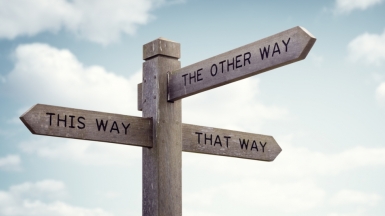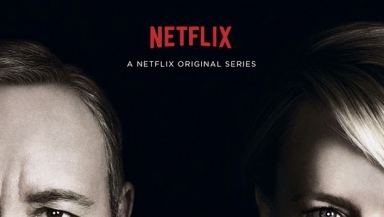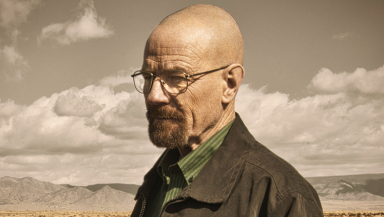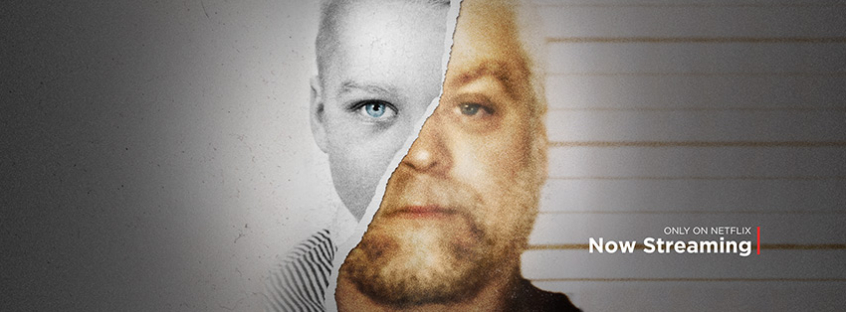
Thanks to streaming services such as Netflix and Amazon Prime there has been a seismic shift in the nation's screen habits. A recent survey showed the revolution that is on-demand digital viewing has not just affected adults but is already impacting pre-schoolers. Childwise's statistics claim that 53 per cent of 0-4 year olds use on-demand services such as Sky, Virgin TV, iPlayer, Netflix and YouTube to access their favourite television shows – up from 35 per cent in 2012.
As a father of six children aged between 3 and 16 years old, I can personally confirm this trend. Cbeebies is no longer good enough for the younger ones when they can specifically ask for favourites Mr Tumble and Fireman Sam. YouTube clips have helped my children learn to count, cook, create manga art, craft origami table placements, construct a concrete step in the back garden and perform a daring rescue mission on the disk tray that was jammed into our Xbox.
The Childwise survey found that 7-16 year olds spend on average three hours a day online while 15-16 year olds spend nearly five hours each day. Another survey conducted this year found that young adults are unlikely to change their high usage of streaming services in later life. It looks like these changes to our viewing habits are here to stay.
To get a sense of the scale of the shift, let's reflect briefly on Netflix's 79 million subscribers. If Netflix was a country it would be the 20<sup>th most populous country in the world. That is significantly larger than the UK or France. It would also be the fastest growing country in the world with 3.6 million members added in the last three months of 2015 alone.
Its revenue in any given quarter would be greater than the entire GDP of many countries. The empire that is Netflix not only has its vast population of subscribers, it has waged war on and effectively decimated the DVD rental market (even though Netflix itself started off as a DVD postal service).
But now Netflix is also disrupting the production of new video content. Netflix's Sarandos has pledged that they will be spending $6 billion on 600 hours of original programming in 2016. That is a game changing amount of money in the industry. It's not just the volume of work being produced that is stirring things up, it's the quality too. At the last American Academy of Arts and Science awards online streaming services took home nine Emmys with Amazon winning five to Netflix's four.

"Binge-watch" was the word of 2015 according to dictionary makers Collins. Most often the word is used to refer to the continuous viewing of multiple episodes of a streamed drama series of the likes of Breaking Bad, House of Cards or Mr Robot.
So what does binging on on-demand TV do to our souls? Destroy our creativity? Siphon off our social skills? Turn us into zombies, bullies or criminals? I'd like to suggest seven ways that this new on-demand viewing may actually be good for your spiritual, emotional and personal development. It turns out that Netflix may actually be good for you soul.
1. Restricting Advertising
Unusually I sat down to watch a programme on terrestrial television with my older three children the other day. One of their favorite shows Marvel's Agents of Shield had been moved to a 9pm slot on a Sunday evening and we all happened to be at home. Most surprising of all was that we knew when it was airing. We watch very little live TV because we mostly consume on-demand boxsets and films, and therefore have no need to check the TV schedules often missing the beginning of new shows and series.
But this time we were on the button. However we all found the constant advert breaks more than annoying - they were intrusive. Ours is a busy household and as there are only a few hours of leisure time we enjoy together we choose carefully what we watch. That evening we were presented with unwanted adverts for sex gels from Durex and then an online sex toy store. It renewed the outrage that I feel at advertising generally - spreading dehumanizing ideas such as that women are to be seen as animals controlled by Lynx-scented men or that true manhood is demonstrated by eating a Yorkie bar. The ad-free world of streaming means that rather than being advertiser fodder, we can exert more power over what we choose to watch - and what we choose to buy, crave and believe.
2. Changing Rhythm
Those that set the TV schedule used to control the movements of the nation. At university, Friday night watching the latest episode of Friends was the gathering moment of our student accommodation.
Recording devices (who even remembers Video Recorders?) made some headway in liberating people from the power of programmers to direct the population's habits, but on-demand viewing takes this to a whole new level.
Some worry that the corporate experience of the nation watching a show together will be lost. It is true that my friends are not live tweeting The Good Wife Season 6 that has just been made available on Netflix three years after it was on US TV. But I think there will be a more 'mixed economy' as event television such as a Strictly Come Dancing final, a Royal occasion or a football match still gather the nation around a live broadcast. Yet the increasing usage of streaming services for personal entertainment and enlightenment is good for the soul because we have more freedom to determine what we watch when we watch it as well as who we watch it with.
3. Practising Self-Control

There's a battle of wills going on when you come to the end of an episode of your favourite drama series. After presenting you with a typical end-of-show dilemma murder or cliffhanger, Netflix kindly informs you that the next episode will begin in 10 seconds. You then have that briefest of windows to decide whether you are going to stay up even later to see how things resolve. It's a perfect storm as the TV producer has perfected the art of keeping you on tenterhooks from many years of their commercial success being dependent on you tuning in seven days later to see what happens next. But now all that persuasive power is against you and gratifying answers are a click away.
The proverbial university student lock-in to watch an entire season of Breaking Bad or the upsurge in sick days when a new series of House of Cards drops show us when self-discipline has hit self-destruct. Christians have always argued that one of the precious things about being human is that we are more than our urges and impulses, indeed self-control is one of the defining traits of true virtue. Netflix gives us a whole new set of opportunities to practice and demonstrate control over our appetites and so can be good for the soul.
4. Fascinating Relaxation
Psychologist Stephen Kaplan of the University of Michigan coined the phrase "restorative experiences" to explain why a ramble through a park or appreciation of a sunset can help relieve stress. Alex Soojung-Kim Pang in an article in Slate magazine argues that Kaplan's term "restorative experience" can be applied to bingewatching House of Cards. Pang notes that that both nature and House of Cards are "fascinating: Unlike a conference call or spreadsheet, they hold your attention without effort. They provide a sense of transporting you from your normal life and environment."
In an age of distraction and second-by-second news reporting, our attention is always under assault. Bingewatching on the other hand helps us to give continued focused attention to one thing for a sustained amount of time. This is a certainly a skill worth learning. Just as few people would chide a student for being absorbed by the rich complexity of Dostoyevsky's Crime and Punishment, perhaps we should be less quick to judge the person who is hooked on a season of The Man in the High Castle? Learning how to linger by the art of fixed and fascinated attention is good soul training after all.
5. Purifying Art
Emily Nussbaum, a writer for The New Yorker magazine, apparently went on a "Breaking Bad bender" recently. She justified her bingewatching as "probably the purest way to watch a great series." It's a good point. First, thanks to High Definition screens and headphones, a cinematic immersive viewing experience is accessible to a mass audience now - not just in a movie theatre but on a train on a mobile phone or even in bed on a tablet.
Secondly thanks to the economics of Netflix, not only is the viewing experience purer, the actual content can be purer as the shows are not broken up by advert breaks. Constant interruptions and frequent recaps are things of the past.
By raising the bar in purity of experience, Netflix is teaching us to become more discerning, more easily spotting the difference between well-written and well-produced series, and shows that exist simply to fill dead air cheaply.
Finally the art of on-screen entertainment can be grasped with all the depth and sophistication that the medium is capable of. Pure immersive and visually and intellectually challenging experiences can be very good for the soul.
6. Deepening Empathy

On-demand series have to deliver a deeper and more complex set of characters and circumstances if they are going to hold up to the scrutiny of the focused and discerned attention of large groups of people. Take for example the transformation of Breaking Bad's protagonist Walter White from humble school chemistry teacher to drug kingpin Heisenberg. This is optimized for a Netflix audience. We are drawn into his desperation, his conflicting commitments and loyalties. White is as rich and desperate a character as Dostoyevsky's Raskolnikov and Breaking Bad is as much of a morality play as Crime and Punishment ever was.
Even when comic book powerhouse Marvel makes the transition from movie theatre blockbuster to on-demand series in the form of Dare Devil or Jessica Jones, we get more than two-dimensional fluffy popcorn characters. Instead we are presented with personalities struggling with the aftermath of abduction, wrestling with responsibility and regret or the limits of their power and prowess.
In a world where we newspaper headlines still try to polarize issues to goodies vs baddies, realising that people have baggage from backstories, complex characters and conflicting contexts helps us learn the skill of deepening empathy. If we can understand why people act the way they do, it makes it much easier to practise that soul-building craft of loving our neighbours.
7. Informing Action
Netflix has also commissioned content that has helped expose people to real life injustice and inequality. Their first feature film was Beasts of No Nation, which was a hard hitting drama starring Idris Elba and telling the tragic tale of child soldiers in West Africa. More recently, inspired by the hit podcast Serial, Netflix produced Making a Murderer, a documentary investigating the validity of the imprisonment of Steven Avery who was convicted of murdering young journalist Teresa Halbach. In January this year 275,000 viewers signed petitions asking President Obama to overturn his conviction.

While there's certainly some unsavoury material available on these streaming services, for the discerning viewer Netflix's content can be good for the soul by increasing our ability to understand the injustice and tragedy in our world. Indeed it might even spur us on to take the next step and practically do something.
When technological shift changes our culture it usually elicits fear. Some of us are old enough to remember when the advent of the internet inspired countless movies reacting and warning against the invasive power of this new technology from Sandra Bullock's The Net to Arnold Schwarzenegger's Terminator. But if we only react to the inherent dangers in progressive technologies in a defensive way, we can miss out on the incredible benefits and opportunities of the changing viewing landscape.
Dr Krish Kandiah is a Contributing Editor to Christian Today and founder and director of Home for Good.

















